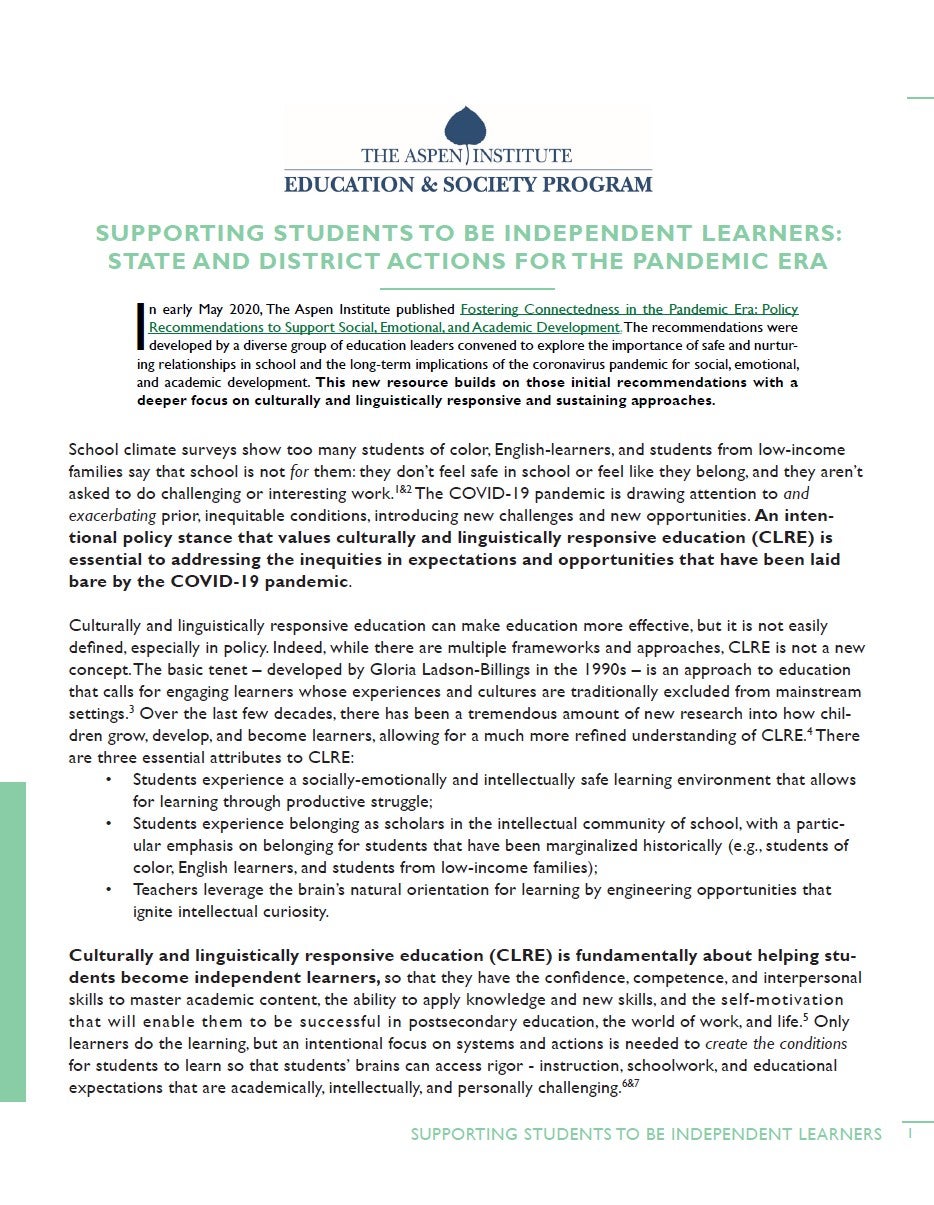In May 2020, the Aspen Institute Education & Society Program shared ten recommended state actions for Fostering Connectedness in the Pandemic Era that were developed with a diverse group of education leaders. The pandemic and resulting closure of school buildings have revealed the deep inequities that already existed in many schools, and connectedness is one of those gaps. Data from school climate surveys demonstrates that students of color, English-learners, and students from low-income families do not feel safe at school, in part because they do not have the kind of caring, trusted relationships that create belonging – and in part because they do not feel challenged with meaningful, rigorous work.
With this in mind, and as a complement to the initial recommendations to advance social, emotional, and academic development, we turned to another diverse set of leaders for actionable insights focused on culturally and linguistically responsive education.
These actions for states include:
- Enable community partnerships to bring valuable cultural capital into schools.
- Ensure all students have access to rigor.
- Equip the education workforce to engage students with rigor through culturally and linguistically responsive education (CLRE).
- Amend state laws and regulations to define “safety” and “school safety” in ways that encompass students’ experience of psychological/intellectual safety and belonging.
- Improve and prioritize school climate measurement and support to better attend to cultural and linguistic diversity.
All five recommendations embrace one fundamental idea: Culturally and linguistically responsive education helps students become independent learners. Education leaders at all levels and people on both sides of the political divide agree that confidence, competence, and interpersonal skills are not just the keys to success in school – they pave the way for success in work and community life.
This is a moment for leadership and action. State and districts have the opportunity to reimagine school when buildings reopen. Connectedness and independent learning should be at the forefront of those efforts.


